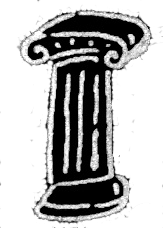What to Do About Death
A year ago my best friend died. As an MD I have, of course, been exposed to death, dying and the dead.The first death I confronted was my pet parakeet who I'd let out so he could fly around the house while no one but me was at home. I was ten years old and was on the phone, crouching on the carpet, when I shifted my weight and felt something crunch under my left heel. It was my parakeet! Unable to face what had really happened, I decided that he was only unconscious from the blow and gently laid him in his cage. The next morning he was in the same position and stiff and cold. I cried and created a coffin out of one of my father's wooden, cedar-lined cigar boxes. The funeral was private, just him and me, out of shame and remorse for the murder I had accidentally committed.When I was in college and decided to apply to medical school my roommate, ever helpful and opinionated, examined my motives. He insisted that I could not make that move without some experience in the medical world. Since he worked part-time for the hospital associated with the medical school of that college, he found me a "perfect job": student diener—the layperson who fetches bodies from the refrigerator, sets up the autopsy and later cleans up. The perfect job since I would only be on call for emergency autopsies, those that on a family's insistence had to be done before the next morning. I found it a bit gleeful, in my prankful teens, to stride down those nighttime, medieval hallways, unlock and enter the refrigerator room where bodies lie with toe tags. I would wheel the gurney with the cadaver into the autopsy room, a circular gallery with tiers of seats terraced up into the horror-movie darkness. A single light poured down onto the stainless steel autopsy table where I placed the naked corpse. This story gets more lugubrious as I was tasked with removing the brain and spinal cord, later sewing up the sternum-to-pubis incision using baseball stitches, and dispatching the discarded organs in plastic bags except for the brain which was saved and labeled in its special glass container. Then and there I decided on cremation for myself..
"The deathbed vigil is the ultimate joyless moment."
.People of every age, even children, consider the fate of their dead body as a hedge, a verbal hoodoo, to push one's death into a single line, a collapsed little strophe. It is said that the most common fears are public speaking and death. And these are polar opposite experiences: a kind of naked exposure to others vs an endless journey alone.Death has evoked an afterlife possibly as the most pertinent reason for evolving language hundreds of thousands of years ago. That linguistic push to understand death was possibly accompanied by an urgent need to gossip. An odd, polar pairing again—the sublimity of religious incantation vs the mundanity of idle talk.Afterlife has been, again for eons, a monetized commodity for all religions. A bad afterlife is well depicted in the world's art and literature with death and dying portrayed as a fraught journey. The listless but perfectly static good afterlife is located somewhere above, celestial, glorious and eternal and motionless as the stars. Whereas the bad afterlife teems loud and riotous and is continually heaving and writhing and never lacking heaven-forbidden drama.The deathbed vigil is the ultimate joyless moment. My friend, initially hospitalized for a routine procedure, endured a trial of failed medical efforts too often repeated, then complications from those efforts that poisoned his body and shut down his kidneys. Then followed the horrors of tubes implanted into his body to drain away the effects of over-treatment. Then followed medical dithering about what next step, and then a massively invasive surgical procedure, which took such a heavy toll that his body faded into death as I stood by his side watching. His was one of those medical accidents waiting to happen. Who knew it would be his?And there are virtually a million or more poems about death and dying, some published to great renown, some hidden in diaries locked in a drawer or transposed into a mental socket somewhere in someone's brain. People in all the possible walks of life fear, revere or dismiss death and yet intone frequently about it. Think of the fascination with murder mysteries, in books and movies and televison, where death is the single motive for producing and consuming these works. Think how much we celebrate death.There are 52 Ted talks about death.Need I say more?

